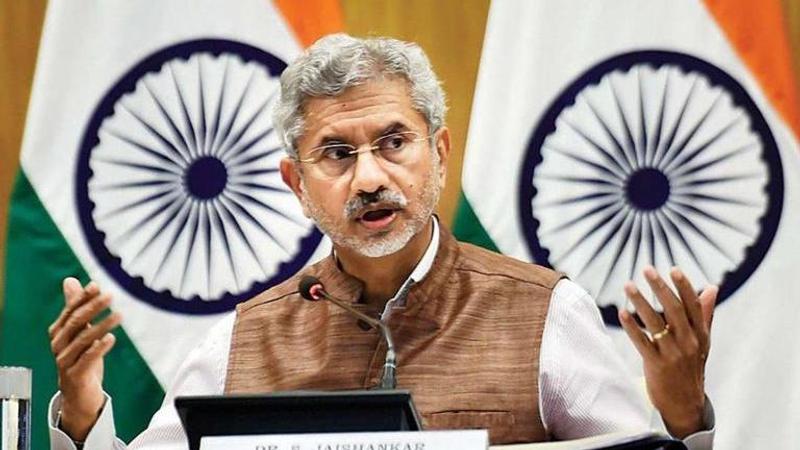Published 06:33 IST, December 15th 2020
Narrow representation at leadership levels of UN challenge to its credibility: Jaishankar
The narrow representation at the leadership levels of the United Nations is a challenge to its credibility and effectiveness, External Affairs Minister S Jaishankar said on Monday, making a strong pitch for reformed multilateralism.

The narrow representation at the leadership levels of the United Nations is a challenge to its credibility and effectiveness, External Affairs Minister S Jaishankar said on Monday, making a strong pitch for reformed multilateralism. Speaking at the Global Technology Summit, Jaishankar said for obvious reasons the UN is equated with multilateralism and the world body is now 75-years-old with the number of members it has about four times to what it was when the world body began.
"So if any entity, any product is 75-years-old and has changed four times over, you would not deny that it is essentially anachronistic. Now, the problem we have today about the narrow representation at the leadership levels of the UN, I think in many ways is a challenge to its credibility and to its effectiveness," he said.
"Obviously India has an interest in the matter, but I would urge you to even look at a continent like Africa. If 50 plus nations don't have a voice just think in terms of what is their sense of ownership of the workings of this organisation," the minister said.
Jaishankar pointed out that the P5 nations - the US, the UK, Russia, France and China are beginning to lose elections in the UN, a development, he said, really means that the thinking among the member states about them is not what it used to be. "Sometimes it has practical issues. You look at something like peacekeeping operations, those who decide the rules of peacekeeping are not those who send forces for peacekeeping. So you have this dichotomy," he said.
"You do need to reform multilateralism, you need to make it representative. You need to refresh your phone regularly. Somebody needs to press that refresh button on the UN," Jaishankar said.
He said what was being seen today was "a very determined blocking of change" in the name of "I don't like country X or I don't like country Y". This is very unfair on the world that has emerged since 1945 and particularly unfair on Africa, he said. "To my mind if the big problem is not fixed, because the UN is the brand name in a sense of multilateralisn, I think multilateralism will lose credibility," Jaishankar said.
He also pointed out that there were also instances of a country taking its particular agenda -- a national agenda -- and trying to pass it as international without consultation with everybody. This behaviour doesn't help multilateralism as it looks like multilateral formats are being used to advance very narrow national goods, he said.
"Behaviour of states on multilateralism has also raised questions as you have had countries that have not observed international law because it doesn't suit them, you have countries who have cherry-picked what they have liked and what they didn't in terms of regimes and norms," Jaishankar said.
"You've had some gaming of the system, particularly in the field of trade, none of which has helped the reputation of multilaterlaism and the result of all of that is the world is significantly more bilateral and the world is also looking at more plurilateral answers," he said.
Jaishankar's remarks come weeks after Prime Minister Narendra Modi had said in September that the United Nations faces a "crisis of confidence" without comprehensive reforms. He had asserted that the world needs a reformed multilateralism that reflects today's realities, gives voice to all stakeholders, addresses contemporary challenges and focuses on human welfare. Jaishankar's remarks also come days before India takes a seat at the powerful UN Security Council as an elected non-permanent member for a two-year term beginning January 1, 2021.
(Image Credits: PTI)
Updated 06:33 IST, December 15th 2020




